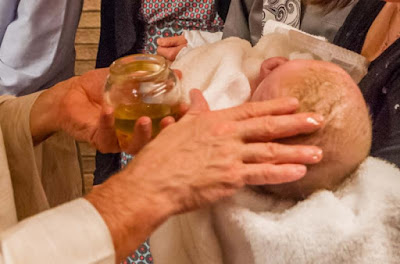Sts. Peter and Paul are described as the Rock and Roll.
Peter is the rock upon which
the Church of Christ is built; a solid foundation of our Christian faith. Peter
is the Rock not so much of his abilities and personal qualities. Peter sinned,
betrayed Christ three times. Peter became the Rock for he was opened to God's
abounding mercy and love for man. Peter is the Rock for he received and
embraced God's gift of faith that enabled him to profess Christ as the Messiah,
the Son of the Living God. Peter is the Rock through the solid faith he
received from God.
Paul is the roll. He rolled throughout the known world of his time;
to the entire Roman Empire. He preached the Gospel revealed by Christ Himself
to him. He preaches to all nations emphasizing the Catholicity; the
universality of Christ's message of love for humanity.
Peter and Paul, the Rock and the Roll went to Rome and watered the
Church of Rome with their very own blood. They were martyred in Rome in the
year 64 and 67 A.D., respectively. They were martyred in the center of the known world to highlight the
oneness, the unity of our universal faith. Most of all, the blood they shed
manifests the true value of Christian faith; the faith for which one can live
and die for.
Sts. Peter and Paul, the Rock and Roll serve as models of our faith.
We are to be rocks regarding our faith; solidly founded on our
Christian beliefs and on Christ's commandment of love. We are to be rocks that
can be used in the formation of our local Church. We are to be rocks whom our
brothers and sisters can hold on to whenever they are in danger of falling to
sin. We are rocks who strengthen our friends whenever their faith wavers.
We are not to be rock alone. We need to roll! After receiving the fullness of
God's Spirit, Peter did not remain in the upper room in Jerusalem. He spoke of
the mighty acts of God up to the hills of Vatican. After his conversion and restoration
of his sight, Paul did not remain in Damascus (Syria). He preached Christ
probably as far as Spain (cf. 1 Clement 5:7; Muratorian Canon), and ultimately
in Rome.
Sts. Peter and Paul rocked and rolled in the name of Christ; in the
name of the faith, Christ gifted to them. And the same Christ gratuitously
gives that same faith to us. Do we rock and roll in the name of Christ? Do we
rock and roll in the name of our faith?
To be solid rock in our faith is good but it is not enough. We have
to let our faith roll in our life, in our community. Some of us are satisfied in
being solid rock in our faith. They do not roll. Is our faith not worth being
rolled through our communities, in our country? Are we ashamed of our Catholic
faith? Peter and Paul live and died for Christ and His gift of faith. Are you
to remain silent in your rooms, in your houses, treasuring that inner peace you
experience in God? Go! Preach! Walk towards your Jerusalem! Christ did not stay in
Caesarea Philippi. He started going to Jerusalem after that blissful confession
of Peter. Peter did not remain in the Cenacle. He went out and preached. Paul
did stay in Damascus he journeyed and preach the word of God, whether the time
is favorable or not, patiently corrected, rebuked, and encouraged people with
good teaching. Not even prison cells stopped Peter and Paul from preaching,
from speaking the truth of our faith (Acts 12:1-11, 2 Timothy 4:6-8 17-18).
When thousands are killed, will you not distracted and remain in
your inner peace? Are we not move to save the lives of every human person, and
uphold the dignity of every human being?
When values we hold dear are being lambasted and questioned, will
you not be distracted and remain in your inner peace? Are we not move to
answer; to clarify our faith in God? Apparently, we are not to save God. But
are we not to express our love and faith in Him?
To be faithful and at peace with our Lord and in our faith; to
attain and treasure an inner peace is the initial stage of our faith. That is
to rock! We do not stay there in that blissful experience. Our God whom we
encounter inspires us to preach about Him, to express the joy we experience, to
share the good news we have received, and to embrace our faith fully. That is
to roll! After all, God is not a static being. He is an act! He moves us to act
too, in the same way, He did to Peter and Paul, in the same way, He IS!








